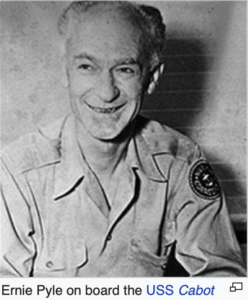by James C. Sherlock
Most of the best journalists in American history had only a high school diploma.
Charles Dickens, a voracious reader with a very limited and interrupted formal education, was a journalist and one of the most honored writers ever.
The Columbia School of Journalism offers, if that is the right word, a masters degree in journalism.
In 2018 the price tag of the Columbia Journalism School, admitted the Columbia Journalism Review, was $105,820 for a 10-month program, $147,418 for a 12-month program, or $108,464 per year for a two-year program. That was a $216,928 graduate degree, on top of all the costs associated with gaining the undergraduate prerequisites.
In 2022, in a demonstration of “shrinkflation” worthy of the business school, the cost of the now-9-month graduate journalism degree program at Columbia is $120,000.
Virginia Tech is a player in the same market.
But then I guess that depends upon how you define player.
Cost/benefit analysis – Virginia Tech. Virginia Tech offers the Commonwealth’s top-rated degree in Communications and Journalism (and only one among the most prestigious schools). In the most recent year for which data are available, it graduated 266 students from that program, 261 with bachelors degrees.
The total cost for in-state Virginia undergraduates to go to Virginia Tech is estimated by that school to be $32,274 for the 2022/2023 academic year for on- campus residents. For out-of-state students, $52,578. So if the student graduates in four years, which many don’t, that is $130,000 for in-state and $210,312 for out-of-state.
As at Columbia, financial aid is available for those who qualify.
It is an open question if journalism students can multiply. Journalism is a popular degree. It is just difficult to figure out why. The movies, I guess.
Journalism is unlikely to put them in the middle class. Top earners make $95,246, while the bottom 20% make closer to $34,261. The median grad salary is $57,125.
If they actually get a job in a field that is collapsing.
The typical early career salary for someone with a bachelor’s degree in journalism is $38,831.
Students who graduate with a degree from Tech’s communication and journalism program reported in a recent year average early career annual earnings of $36,639.
Walmart is offering new truck drivers $110k per year. To start.
Maybe the journalism majors, many of whom will work out of their cars, can drive for Walmart and report from a big rig.
Free speech, Columbia and Tech. Given their horrible free speech rankings, one wonders what they talk about in journalism class at both Columbia and Tech.
Columbia University is ranked last in the nation in free speech. It was the only school in the country awarded an “abysmal” rating by the Foundation for Individual Rights and Expression (FIRE) in its 2022-2023 College Free Speech Rankings. It finished 203rd and last.
FIRE researchers determined that only 27% of Columbia students see shouting down a speaker to silence them as “never acceptable.” The liberal-to-conservative student ratio is almost seven to one. A self-identified liberal student at Columbia reported feeling there is sometimes “no room for nuance in discussion.”
It is likely many of those journalism students, in a $210,000 nine-month program, sit silent rather than risk offense.
Tech, like Columbia, is very low in the rankings for free speech — 150th out of 203 schools ranked by FIRE.
FIRE ranked five Virginia schools for free speech among the 203 it graded. The best was William and Mary at 12th. Then George Mason at 17. UVa at 24. W&L 70. Tech 150.
Of those five, only Tech offers a communications and journalism degree. Nationally that journalism program is rated 49th in overall quality.
Only 36% of students at Tech say shouting down a speaker to prevent them from speaking on campus is never acceptable.
So is there something about restrictive speech environments that attracts journalism majors — and professors?
The job that awaits. Those data for free speech and journalism majors explain much of what is going on with an ongoing shrinkage of the staffs of news reporting organizations.
Recent graduates, with very low costs attributable to their inexperience, are hired. Many work out of their cars.
As do many who work in Hampton Roads for Tribune Publishing’s Virginian-Pilot and Daily Press. Whose combined office is off of Jefferson Ave. in Newport News. Near a Brazilian restaurant and a FEDEX drop box. Both papers are printed in Richmond last I heard.
At those wages, for some, especially for those who report from South Hampton Roads, their cars may be both office and home. They, like their friends at The Washington Post and NY Times, could shout down their bosses. But they would have to find them first.
Across Virginia, senior reporters and editors, who actually knew something about the areas and subjects of which they wrote, are mostly gone.
Junior reporters, armed with dogma and a smart phone, attempt to fit the news into a narrative, which is easier if you know nothing about the subject.
Editors are too expensive. Those that remain are given so many hats they cannot mentor and supervise junior reporters.
Welcome to Virginia, and American, journalism in 2023.





